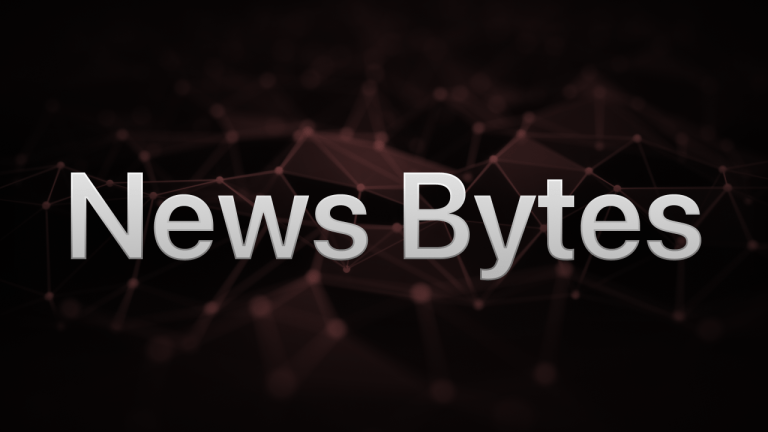 The Cardano blockchain co-founder, Charles Hoskinson, has expressed frustration over what he perceives as a disconnect between the public perception of Cardano—shaped by influencers and media—and the project’s actual progress and fundamentals. Hoskinson highlighted technological advancements such as Hydra, the development of partner chains, and many community events as some of Cardano’s achievements. Despite these […]
The Cardano blockchain co-founder, Charles Hoskinson, has expressed frustration over what he perceives as a disconnect between the public perception of Cardano—shaped by influencers and media—and the project’s actual progress and fundamentals. Hoskinson highlighted technological advancements such as Hydra, the development of partner chains, and many community events as some of Cardano’s achievements. Despite these […]

“A vote for Biden is a vote against the American cryptocurrency industry,” said Charles Hoskinson in a video that lashed the White House for its ongoing treatment of crypto in the United States.
Cardano founder Charles Hoskinson has lashed out at United States President Joe Biden, claiming that he’s making a concerted effort to kill the crypto industry in the United States.
In a May 9 video posted to X, Hoskinson said it was “unambiguously clear” the Biden administration is trying its best to “destroy the American cryptocurrency industry.”
He said that over the past few years, the U.S. government had “hurt [the crypto] industry in every way possible,” citing the restricted access to bank accounts, the Securities and Exchange Commission’s (SEC) policy of regulation by enforcement — and most recently — the White House “obstructing” the legislative process.

The creator of smart contract platform Cardano (ADA) is calling out President Joe Biden’s stance on a planned resolution that would enfeeble the U.S. Securities and Exchange Commission (SEC). In a new video update, Charles Hoskinson tells his 315,000 YouTube subscribers that Biden saying he would veto H.J. Resolution 109 if passed is “just a […]
The post ‘Just a Bunch of Noise and Garbage’: Cardano Creator Blasts Biden’s Stance on Planned Repeal of SEC Custody Law appeared first on The Daily Hodl.

The ayes are winning with 8,301 votes for to 4,212 against, as of the time of this article’s publication.
Cardano founder Charles Hoskinson recently posted a “hypothetical poll” on the X social media platform asking the crypto community if they’d be interested in seeing a Cardano and Bitcoin Cash integration.
The poll received more than 12,000 votes in its first 24 hours with a 66.3% early majority voting “yes” to the proposal.
As mentioned above, Hoskinson labelled his poll as being hypothetical. However, as Elon Musk has shown since his purchase of the X platform, formerly Twitter, it’s possible to use the platform as a steering point for decision making.
 In a video address, Charles Hoskinson casts a spotlight on the advance of traditional financial mechanisms into the realm of cryptocurrency, warning that the essence of digital currencies is at stake. Charles Hoskinson Warns of Crypto’s Creeping Centralization In a recent video titled “Legacy is Eating Crypto,” Charles Hoskinson, the co-founder of Ethereum and Cardano, […]
In a video address, Charles Hoskinson casts a spotlight on the advance of traditional financial mechanisms into the realm of cryptocurrency, warning that the essence of digital currencies is at stake. Charles Hoskinson Warns of Crypto’s Creeping Centralization In a recent video titled “Legacy is Eating Crypto,” Charles Hoskinson, the co-founder of Ethereum and Cardano, […]
Charles Hoskinson took a jab at the perceived inconsistency in applying decentralization standards by the U.S. Securities and Exchange Commission (SEC).
The United States’ approach to cryptocurrencies could do more harm than good and they risk losing major players by the time they “get their act together,” Cardano founder Charles Hoskinson has said.
“When you look at some of the U.S. regulators, in particular, they’ve done a really good job of alienating most of the industry. They aren’t clear at all,” Hoskinson told Cointelegraph on the sidelines of the recent Abu Dhabi Finance Week.

He took a jab at the perceived inconsistency in applying decentralization standards by the U.S. Securities and Exchange Commission (SEC), stressing that Cardano (ADA) did not conduct an initial coin offering (ICO) and saying ADA vouchers were sold in Japanese territory with no U.S. participation.
“I guess, apparently, that’s under U.S. jurisdiction,” Hoskinson said. “There was an airdrop, but people then sold on Binance and Bittrex… According to the recent court ruling with Ripple, that’s not an investment contract. So it was never really clear how that applies.”
Hoskinson also pointed out that Ethereum, which he said conducted an ICO for their Ether (ETH) token without implementing mandatory Know Your Customer (KYC) and Anti-Money Laundering (AML) checks, and Bitcoin (BTC) were labeled non-security for “some reason.” He said:
“There are a lot of facts and circumstances that are insanely ambiguous, and it seems like it’s just the monster of the week. And if they can’t have success with a layer-one, like Ripple, then they go hit the exchanges… That's not really a well-formed policy.”
On Nov. 20, the SEC filed a complaint in a federal court, alleging that crypto exchange Kraken commingled customer funds and failed to register with the regulator. In the complaint, the SEC listed 16 cryptocurrencies it considered securities, ADA.
Hoskinson contends that the registration process with the SEC is vague as “it’s not possible to actually operate these systems in a reasonable way.” He argued:
“How can any issuer understand who holds the cryptocurrency when they have no control over the distribution? How can you do KYC and AML on every single person in an open decentralized protocol? If the issuer goes out of business and the protocol still operates, what happens? Who registers?
Related: Binance CEO CZ’s downfall is ‘the end of an era’ — Charles Hoskinson
Asked what he wants to see from regulators, Hoskinson said they have to introduce clear, unambiguous policies and implement an open door policy between the crypto industry, regulators and legislators to resolve issues and, if necessary, update laws to reflect emerging technologies.
But while he believes litigation will continue, Hoskinson is positive that the regime and policies will change over time:
“What we’ll likely see is a law passed that removes the ambiguity like the [Financial Innovation Act]... and there will be some regime that between the CFTC and the SEC to sort all of this out.”

The Cardano founder claimed that crypto entrepreneurs must comply with regulation or use completely decentralized systems in the future.
In a Nov. 22 YouTube video, Cardano founder Charles Hoskinson reflected on the news that Binance CEO Changpeng "CZ" Zhao has stepped down from the exchange. Hoskinson claimed that this event represents “the end of an era.” He argued that entrepreneurs g will need to comply with regulation or else develop completely permissionless protocols that can’t be regulated.
The End of an Era https://t.co/d3AcHWu66C
— Charles Hoskinson (@IOHK_Charles) November 22, 2023
In the video, Hoskinson claimed that CZ was “part of a class of entrepreneurs in the cryptocurrency space that really epitomized the move fast, grow, and innovate side of things.” In the early days of crypto, Bitcoin traders used spreadsheets to make trades and sent funds to buy Bitcoin via PayPal, Hoskinson said. This period represented the “first wave” of innovation in the space. CZ and Binance came in the “second wave” in 2017 and became a “Leviathan in our industry.” “He [CZ] was one of the greatest entrepreneurs of our time,” Hoskinson stated, adding that “trillions of dollars of assets flowed through his exchange.”
However, Hoskinson warned that the world is changing, and entrepreneurs will no longer be able to get by using centralized systems while simultaneously not complying with regulations. This is because “the U.S. has a financial regime that basically has been weaponized,” and this regime will not allow entrepreneurs to open up markets that let “the enemies of America [...] Trade and do things.” Hoskinson claimed that the world is becoming “multipolar,” leading many countries to reject this U.S.-led system. In his view, this is leaving crypto “caught in the middle,” resulting in incidents like the Binance plea-deal.
Related: Sam Bankman-Fried just like Bernie Madoff, Cardano founder says
He suggested that the U.S. government will likely continue its efforts to regulate crypto services, including eventually “hitting” or trying to put restrictions on external wallets. However, he also claimed that entrepreneurs “still have a lot of power” that can be used to foster freedom while also allaying some of the concerns of regulators. Hoskinson suggested that Midnight, a network aimed at facilitating transactions based on algorithmic law, may provide part of the solution to the problem of government regulation of crypto.
On Nov. 21, the U.S. Justice Department announced that CZ and Binance had agreed to a plea deal connected to criminal charges of violating the U.S. Bank Secrecy Act. On the same day, CZ announced that he was stepping down as CEO of the exchange, and he posted a bond of $15 million to a United States District Court to be released from custody. CZ’s sentencing hearing is scheduled for Feb. 23, 2024. Hoskinson referred to CZ as “a friend” and “a good man” in the video.

Cardano Foundation CEO Frederik Gregaard told Cointelegraph that the pieces of research that the network has “spent years of doing and implementing” are already being used by some of the fast-moving blockchain platforms.
Cardano has come under fire from critics for delays in the rollout of features and network upgrades. This slower-paced cadence, however, appears to be a badge of honor to Cardano Foundation CEO Frederick Gregaard, who said that the network is “boring,” considering the platform’s academic approach.
“Cardano is boring. We are boring because we are based on academic peer-reviewed papers, [and] we are sharing that across the globe,” Gregaard told Cointelegraph on the sidelines of the recent Cardano Summit in Dubai.

The executive pointed out that the pieces of research that Cardano has “spent years of doing and implementing” are already being used by some of the fast-moving blockchain platforms, which he feels “incredibly proud” of:
“If they take some of the core principles we’ve researched and invented, this is good for the earth… [and] humanity at large because this makes more resilient, more adaptable blockchains around the world.”
Gregaard added that the trend is also important with the increasing adoption of artificial intelligence (AI) that would require the industry to have computable data. He added:
“I say, ‘Sorry, we are boring.’ But we are one of the oldest projects. We are very big… We are the one who has the most changes on GitHub, and we have not been down for over 2000 days… Boring sometimes is good.”
Cardano’s recent significant updates, including the layer-2 scalability solution Hydra in May and the stake-based multisignature protocol Mithril in July, resulted in network upticks following their launch. More recently, in the third quarter of 2023, while Cardano’s decentralized finance (DeFi) activity remained flat, its total value locked (TVL) was up 198% year-to-date, data from blockchain analytics firm Messari shows. The network’s TVL, which ranked 34th at the beginning of the year, now sits at 15th among all the networks reviewed.
As the ecosystem prepares for the upcoming Voltaire, the final era of the Cardano roadmap that focuses on decentralized governance, Gregaard said the ecosystem’s aspiration levels on on-chain governance “is way higher than other projects,” but they try to take the learnings from other networks, including MakerDAO. He said:
“This is about capturing the essence of the vision and mission and the culture of Cardano. I think the discussion about how much you can push on-chain and off-chain is probably even more relevant.”
The executive added that Cardano will continue conducting workshops next year, where the community will be able to “verify, validate and contribute to a constitutional document.”

The workshop details, as shown above, are aligned with the Cardano Improvement Proposal 1694 (CIP-1694).
The Cardano ecosystem has been known in the space for having a strong community. However, similar to other projects in the decentralized realm, it has not been spared from controversies surrounding crypto tribalism — a phenomenon that has fragmented the industry.
Gregaard sees it as a strength, saying that a public, permissionless blockchain needs a large community across all the infrastructure, including the value capture layer. He added that they continue to add to this community, claiming they have recorded over 200,000 new noncustodial wallets in a bear market.
The executive also said that the “best work” in the space happened in second and third-generation blockchains founded by known figures, suggesting that people follow projects due to the “legacy” behind them.
Ethereum co-founders Charles Hoskinson and Gavin Wood, for instance, left the second-generation blockchain and started their own platforms, namely Cardano and Polkadot, respectively.
“Some of it is also nearly emotions and politics, but that’s when it’s good to have somebody like Cardano Foundation because we are nonprofit. We are not directed by any founders,” Gregaard explained.
“What a lot of people don’t realize is that this tribalism is sort of watering out a little bit, as we more and more see the scope and the impact and, more importantly, the importance of what blockchain can bring to the world order and society at large,” he added.
According to Gregaard, Cardano will continue following its current path toward becoming a stable network, which will involve a series of hard forks and the enactment of CIP-1694.
“We will change the core governance principles or the execution of the governance while still staying true to the vision. I think you will see multi-party computation, ZK-rollups and a lot of other things.”
The executive added that he expects many nation-states to use Cardano not just in financial markets but also in international trade industry and voting, among other things. He also anticipates the maturity of the application landscape of the network.
Magazine: Slumdog billionaire 2: ‘Top 10… brings no satisfaction’ says Polygon’s Sandeep Nailwal

Cardano (ADA) creator Charles Hoskinson says that the real battle in digital assets is now between cryptocurrencies and central bank digital currencies (CBDCs). In a new Coin Bureau interview, the chief executive of Input Output Global warns of the dangers of CBDCs and extolls the key principles of decentralized crypto. “It’s not a game of […]
The post Cardano Creator Charles Hoskinson Says Game of Crypto vs. CBDCs Now Underway – Here’s What He Means appeared first on The Daily Hodl.

Ripple community and Cardano founder have clashed over the definition of corruption in the context of the ETHgate scandal.
Ripple chief technology officer David Schwartz has countered Cardano founder’s comments about possible motives behind the United States regulators’ determination that Ether (ETH) is not a security.
Cardano founder Charles Hoskinson addressed the much-debated ETHgate theory in an AMA session on Oct. 8, arguing that the government’s actions were not about corruption.
ETHgate is a conspiracy theory alleging that Ethereum received a free pass from U.S. regulators, particularly the U.S. Securities and Exchange Commission (SEC), which has been reiterating its stance that ETH isn’t a security for years.
Despite SEC director William Hinman defining Ether as not a security in 2018, U.S. regulators have been struggling to establish the status of other coins, including XRP (XRP), which has created significant impediments to their adoption.
According to Hoskinson, Hinman's speech drafts on the regulatory status of Ethereum — which were released in June 2023 — do not prove corruption but favoritism.
“None of that activity presupposes corruption, just favoritism,” Hoskinson argued in the AMA, adding that “this is how the internet works and it can't be fixed now.”
The Cardano founder emphasized that there has been no evidence proving anything apart from favoritism by the SEC. “What evidence do you have of that? Where are the emails? Where are the meetings,” Hoskinson asked. He also argued that XRP serves different customers and doesn’t even have smart contracts and has an entirely different business model. He added:
“Doesn't that dilute your entire goal of making Ethereum not a security to also do that? Are you so scared of XRP that's going to happen? You really believe that? If you do, you're a crazy person in my book.”
Hoskinson's fresh ETHgate-related remarks have quickly triggered a response from the XRP community, particularly executives like XRP CTO Schwartz. The XRP community specifically clashed with Hoskinson over the definition of corruption.
“I would argue that a government actor showing favoritism aligned with the personal interests of themselves and their friends is corruption,” Schwartz wrote on X (formerly Twitter) on Oct. 12.
“So saying word ‘corruption’ in much polite way is ‘favoritism’,” one commenter noted on X.
Related: Sam Bankman-Fried just like Bernie Madoff, Cardano founder says
Some community members also alleged that Hoskinson’s questions about ETHgate evidence might be related to the fact that he allegedly has a lot to hide about his early days in Ethereum.
Apart from his role at Cardano, Hoskinson is also one of the eight Ethereum co-founders alongside Vitalik Buterin and even briefly held the position of Ethereum’s CEO between 2013 and 2014. Following a public fall-out between the co-founders, Hoskinson left Ethereum in 2014 to subsequently launch Cardano.
Magazine: Blockchain detectives — Mt. Gox collapse saw birth of Chainalysis